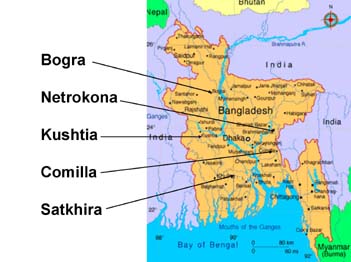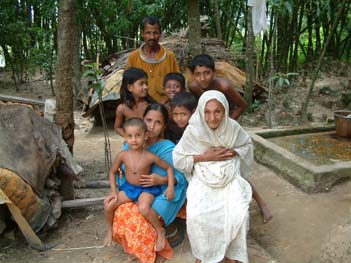 The project expects to work with 15,000 farmers across 100 communities within 3 years. Each year, communities in five different regions of Bangladesh will be trained with basic knowledge about rats and how to use appropriate tools and strategies to sustainably and cost-effectively manage their rat pest problems.
The project expects to work with 15,000 farmers across 100 communities within 3 years. Each year, communities in five different regions of Bangladesh will be trained with basic knowledge about rats and how to use appropriate tools and strategies to sustainably and cost-effectively manage their rat pest problems.
There are several steps in this process, which start by first showing farmers and communities what life can be like in the absence of rodents through first-hand observation and experience when rodent populations are successfully controlled.
The farming communities then need to decide whether their investments (time & labour) into the ecologically-based rodent management strategy are worthwhile. Are their lives better now? How much better? The project partners will help the communities make these assessments.
 Important assesments to be made by the project will be whether communities can maintain the rat management strategy without external assistance and do communities sufficiently understand the management concepts involved to make the strategy adaptable to changing circumstances.
Important assesments to be made by the project will be whether communities can maintain the rat management strategy without external assistance and do communities sufficiently understand the management concepts involved to make the strategy adaptable to changing circumstances.
Finally, communities must decide to “buy in” to the rat management strategy. Will communities purchase traps and continue? We expect the answer will be yes in most situations, but understaning why a community might say "no" to rat management will be important for scaling up the project actions.
Ultimately, we expect that ecologically-based rat management strategies can be institutionalised within sustainable frameworks. For example, NGOs could operate revolving fund schemes to reach more communities at minimal cost. Charitable donors may find the programme attractive by funding extensions to the programme to reach more communities, allowing more poor people to be empowered to live without the severe rat problems they face every day.
